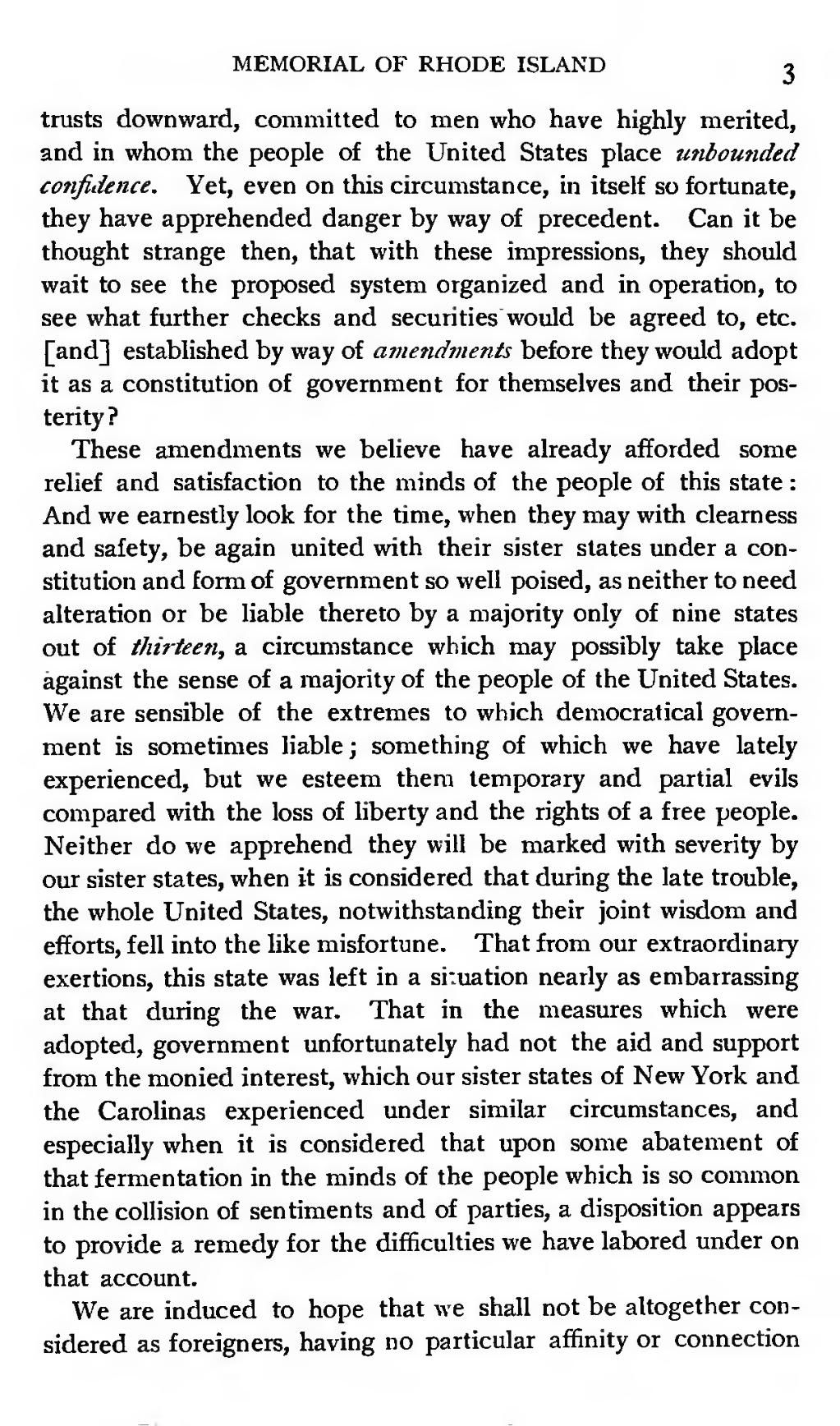trusts downward, committed to men who have highly merited, and in whom the people of the United States place unbounded confidence. Yet, even on this circumstance, in itself so fortunate, they have apprehended danger by way of precedent. Can it be thought strange then, that with these impressions, they should wait to see the proposed system organized and in operation, to see what further checks and securities would be agreed to, etc. [and] established by way of amendments before they would adopt it as a constitution of government for themselves and their posterity?
These amendments we believe have already afforded some relief and satisfaction to the minds of the people of this state: And we earnestly look for the time, when they may with clearness and safety, be again united with their sister states under a constitution and form of government so well poised, as neither to need alteration or be liable thereto by a majority only of nine states out of thirteen, a circumstance which may possibly take place against the sense of a majority of the people of the United States. We are sensible of the extremes to which democratical government is sometimes liable; something of which we have lately experienced, but we esteem them temporary and partial evils compared with the loss of liberty and the rights of a free people. Neither do we apprehend they will be marked with severity by our sister states, when it is considered that during the late trouble, the whole United States, notwithstanding their joint wisdom and efforts, fell into the like misfortune. That from our extraordinary exertions, this state was left in a situation nearly as embarrassing at that during the war. That in the measures which were adopted, government unfortunately had not the aid and support from the monied interest, which our sister states of New York and the Carolinas experienced under similar circumstances, and especially when it is considered that upon some abatement of that fermentation in the minds of the people which is so common in the collision of sentiments and of parties, a disposition appears to provide a remedy for the difficulties we have labored under on that account.
We are induced to hope that we shall not be altogether considered as foreigners, having no particular affinity or connection
